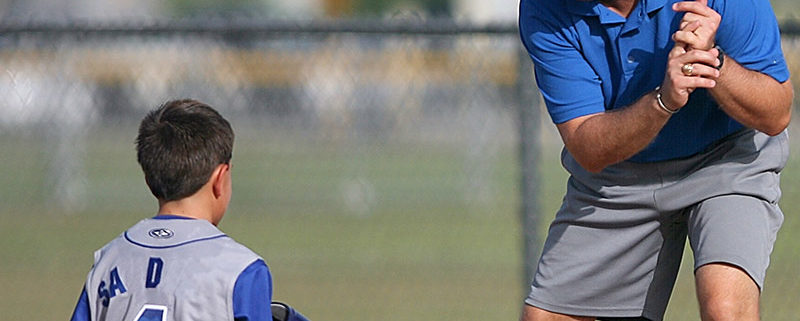Can Teaching Learn Anything From Elite Sports Coaching?
by Richard Morton, Sir John Lawes School
The most celebrated “expert on expertise”, Anders Ericsson, identified a process he called “deliberate practice” as the essential method of achieving mastery in any field (Ericsson and Pool, 2016), and the concept has an understandable appeal to teachers wishing to help their students succeed. Ericsson’s work provided the academic background to the famous “10, 000 hours rule” which attempted to quantify the duration of practice needed to achieve expert performance, although Ericsson himself emphasises that this is merely an arbitrary number and that quality of practice is just as important as quantity. A key element of deliberate practice that Ericsson identifies is the guidance of a skilled coach who can provide detailed feedback and design a sequence of specific practice opportunities to maximise learning – in other words, a good teacher.
The best teaching I have ever experienced was from an elite sports coach. To be clear, I have never been an elite athlete, irrespective of how one may define that. However, as a club-level rower I had the great fortune to be taught for several years by Marcus de Grammont, a coach with a deep practical understanding of deliberate practice and the experience of developing elite performers (in one case a world champion). Despite my own modest achievements, the learning I experienced over time was spectacular, confirming to me the power of deliberate practice and suggesting a number of ways that, as a teacher, I can apply principles from elite sports coaching to support my own students. Almost certainly, this is not limited to sport. Although I have no first-hand experience of these (at any respectable level!) the literature on developing expertise identifies the same principles in elite musicians, performing artists and all other established domains of expertise. Incidentally, I believe this is a powerful argument for maximising the extra-curricular provision of sport, music and the arts in our schools.
Are there limitations to using sports coaching as a model in the classroom? Of course. Sport is an environment in which success can be clearly and quickly measured, skills can be repeated and (some) variables can be controlled. While sport is certainly complex, it has nothing on teaching. Hogarth (2010) compares “kind” learning environments, in which performance is easily measured and the consequences of actions are quickly apparent, with “wicked” environments where these are not the case. With so many variables (both known and unknown) and with success only objectively measured by external exams once or twice in a student’s 12-14 year school career (and even those measure relative rather than absolute performance) even discovering the effect of a single intervention with any degree of confidence is extremely difficult. In addition, sports coaches work with a largely self-selecting cohort – it is ok if athletes without the motivation and mindset to work hard simply drop out. In school our students rarely have this option, so we are teaching in a very different context. Despite this, I believe there are lessons we can learn from the highly developed – and constantly empirically tested – approaches of elite sports coaches. Here are a few examples:
Feedback
Feedback from a coach is one of the most important aspects of deliberate practice, and is also a major part of a teacher’s role. But do we approach it in different ways? To start with, feedback from a coach is not subject to any accountability policy or schedule, but is simply concerned with improving future performance (“feed-forward”, as Michael Chiles (2021) calls it). Good feedback focuses on a very specific, detailed aspect of performance chosen to have the greatest long-term effect, much as Harry Fletcher-Wood (2021) advocates and far from the generic feedback bemoaned by Dylan Wiliam (2011). Indeed, Marcus focused on a single part of my rowing stroke for several years, and he was right – once I had developed it sufficiently I was able to make quicker progress on subsequent areas. Feedback in sports coaching is usually immediate – “in the moment”, as Tom Sherrington (2017) describes it – no waiting a week for written comments in a book! Marcus was able to strike a balance between giving immediate, specific feedback with being more detailed and thorough by establishing a rigorous continuity of language between training activities and our subsequent video analysis sessions. For example, we developed a code in which we numbered each part of the rowing stroke (initially three, progressing to eight as I improved) and a consistent verbal shorthand for the technical information I might need “in the moment”. One of my priorities in my own teaching will be to establish a similar common language with my students to connect the immediate (during tasks) and delayed feedback (such as test reviews or whole class feedback) that I give them.
Drills and skills
Daisy Christodoulou (2016) notes that many of the most effective tasks for long-term learning look very unlike the final tasks on which summative assessments will be made. This approach is exemplified in sports, in which a coach will carefully select a specific drill to isolate a single aspect of performance, and rehearse this until a very high standard has been achieved. In my training, this led to lengthy periods of time when I didn’t actually appear to be getting any faster, but it made me much faster when racing many months later (as Marcus had known it would). In teaching this would translate into repeated practice of a skill or retrieval practice to develop extensive schema of knowledge – far beyond a token exercise to “show progress” in a single lesson before moving on to the next topic. Although curriculum timing can be a limitation, regularly repeated practice of carefully chosen essential knowledge and skills – to the point of “overlearning” (Willingham, 2004) – would be time well spent in the long run. And surely, in teaching as well as in sport, the only progress that is worth having is long-term progress.
Marginal gains
The concept of marginal gains was made famous by the success of British cycling teams around a decade ago, and has been well described by Matthew Syed (2015). In reality however, it has been around much longer, since most sports are “highly developed fields” (Ericsson and Pool, 2016) and have consistent and well-understood methods of training. Any method that led to a huge improvement in performance would already be in use, so (barring very occasional innovations) making marginal gains is the only way for the field to keep progressing. Transporting athletes’ mattresses between team hotels – as Team Sky famously did – only worked because the rest of their training programme was already finely tuned. Most of the training activities I did with Marcus were ones he had been using successfully for decades, refining when necessary. Like sport, teaching has been around a long time and many great minds have devoted themselves to the challenge of doing it better. If there were a silver bullet that could reliably produce great improvements we would probably all be using it by now. While we can always improve our teaching, we shouldn’t expect the latest “fad” – be it dialogic marking, growth mindsets, cognitive science, ed-tech etc (or indeed learning from sports coaching!) – to revolutionise our students’ performance. As successful sports coaches know, sustained improvement for both individuals and organisations usually comes from constantly trying to optimise many individual aspects of performance, and perhaps this would be a better approach for us too.
Student welfare
An essential aspect of a good sports coach is that they care more for the welfare of their athletes than for their results. This should be too obvious to need saying. However, throughout history coaches have adopted a “winning at all costs” approach (Weil, 2011) in which the pursuit of results has negatively affected athlete welfare. This is not good coaching, I’m not interested in any teaching techniques these coaches may use and I would argue that they have misunderstood the very nature of sport. However, we must recognise that the same can apply in teaching if we focus on student attainment (on which teachers and schools are measured) ahead of student welfare (which is not measured). Good coaches and teachers are prepared to adapt their teaching to take account of student welfare. While we trained hard, Marcus knew when to reduce the intensity of sessions or increase rest in order to maintain quality and prevent injury. Crucially, his experience had made him a much better judge of this than I was – perhaps we as teachers are in a similar position with our students (and colleagues)? Winning an Olympic final or achieving an A* may be good things, but not at all costs – especially if that may involve damage to anyone’s physical or mental wellbeing. With much current concern over “lost learning” and students “catching up” after lockdowns, there is the potential for conflicts to arise between performance and welfare, and I believe the example of good sports coaching may help us as teachers to focus on our greatest priorities.
I hope some of these areas have provided some food for thought. I am sure some readers will have had more experience of elite performance – across a range of fields – than I have, and I’d be very interested to hear any feedback you may have. Teaching is an extremely complex learning environment, and while not everything done in elite sports coaching can – or should – be transferred, I believe there are insights we can gain from another highly developed field that has benefitted from a rather “kinder” environment in which to learn and develop.
References
Chiles, M. (2021) The Feedback Pendulum; A manifesto for enhancing feedback in education Woodbridge: John Catt Educational Limited
Christodoulou, D. (2016) Making good progress? The future of Assessment for Learning Oxford: Oxford University Press
Ericsson, A. and Pool, R. (2016) Peak; How all of us can achieve extraordinary things London: Vintage
Fletcher-Wood, H. (2021) Focussed feedback: why less is more available online at https://improvingteaching.co.uk/2021/02/28/focused-feedback-why-less-is-more/
Hogarth, R.M. (2010) Intuition: A challenge for psychological research on decision making. Psychological Inquiry, 21(4), 338-353
Sherrington, T. (2017) The Learning Rainforest; Great Teaching in Real Classrooms Woodbridge: John Catt Educational Limited
Wiliam, D. (2011) Embedded formative assessment Bloomington, IN: Solution Tree Press
Willingham, D. (2004) Ask the Cognitive Scientist: Practice Makes Perfect—But Only If You Practice beyond the Point of Perfection available online at https://www.aft.org/periodical/american-educator/spring-2004/ask-cognitive-scientist-practice-makes-perfect
Weil, T. in Volker Nolte (Ed., 2011) Rowing Faster: Serious training for serious rowers (second edition) Champaign, IL: Human Kinetics






